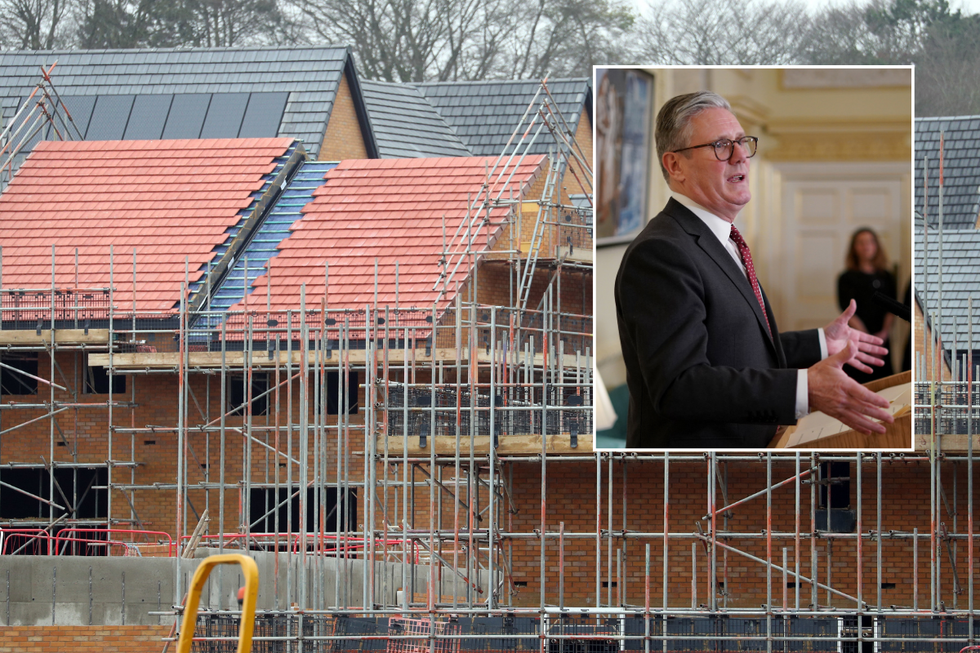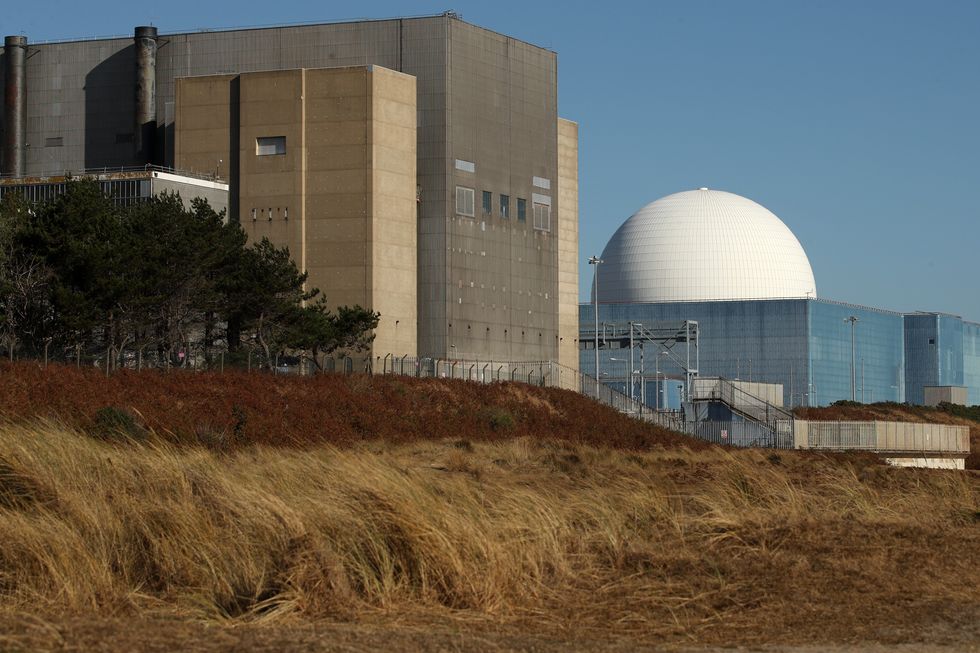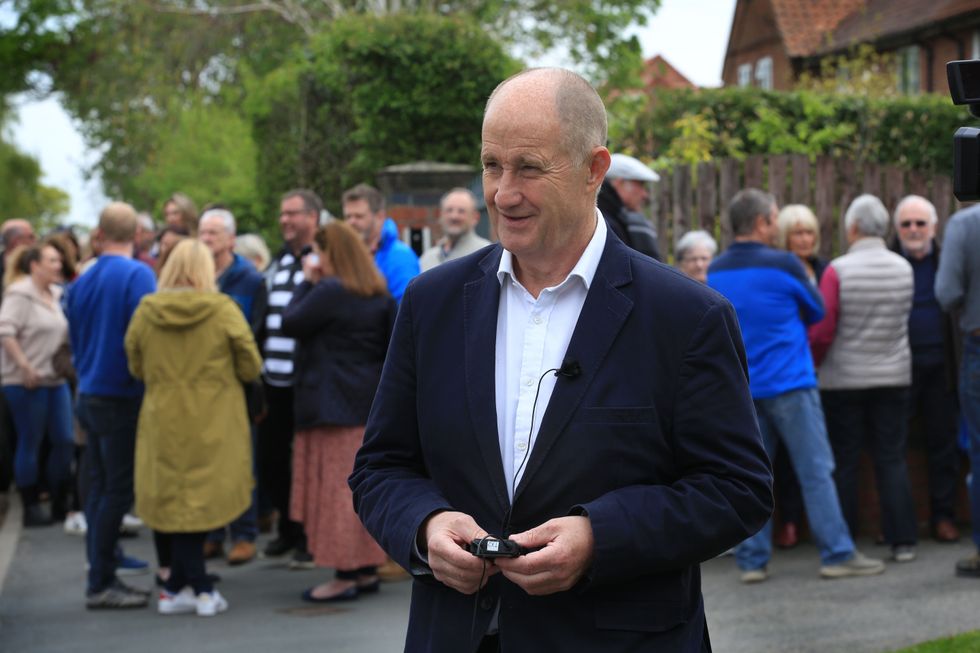George Bunn
Guest Reporter
Sir Keir Starmer has vowed to challenge opponents of major infrastructure projects after declaring Labour is "backing the builders, not the blockers".
The Prime Minister said he would bring an end to "challenge culture" and pledged to take on so-called "nimbys".
Downing Street said it hoped it would bring an end to "cynical" or "hopeless" cases causing delays and increasing the cost of infrastructure projects.
The Government claims more than 58 per cent of all decisions on "major infrastructure" get taken to court as it commits to making 150 major infrastructure project decisions by the next election.

Opponents currently have three opportunities to secure permission for a judicial review against a major infrastructure project, firstly by writing to the High Court, then in an oral hearing and finally by asking the Court of Appeal.
But under plans announced by Downing Street, the written stage will be scrapped and any cases deemed "totally without merit" will be unable to ask the Court of Appeal to reconsider.
The Prime Minister said: "For too long, blockers have had the upper hand in legal challenges – using our court processes to frustrate growth. We’re putting an end to this challenge culture by taking on the Nimbys and a broken system that has slowed down our progress as a nation.
"This is the Government’s Plan for Change in action – taking the brakes off Britain by reforming the planning system so it is pro-growth and pro-infrastructure."
LATEST DEVELOPMENTS

According to the Government, more than half of decisions on nationally significant infrastructure projects were taken to court, causing an average delay of 18 months and adding millions to costs.
Officials pointed to cases including the approval of Sizewell C, in Suffolk, where campaigners spent 16 months seeking permission for a judicial review despite their case being described as "unarguable" at every stage.
However, only some of the grounds in the Sizewell C case were deemed “totally without merit”, meaning the remaining grounds could still have been reconsidered by the Court of Appeal.
Shadow Housing Secretary Kevin Hollinrake said: “While we welcome the Government taking forward Conservative initiatives to streamline the planning system, Labour’s blocking of our efforts to cut EU legacy red tape, such as nutrient neutrality, so they can align more closely with the European Union will hold Britain back.”

The Prime Minister also pledged to "bring back common sense" to building new projects.
Writing for The Daily Mail, Starmer said: “Cases that are unarguable and unwinnable can be brought back to the courts three times.
"That causes years of delay. It costs hundreds of millions of pounds. It clogs up the courts. And strangles growth.
"The entire country pays the price. Bringing back common sense to building is the least this country deserves. Because if we want growth, we need the infrastructure to support it."
Find Out More...
The Prime Minister said he would bring an end to "challenge culture" and pledged to take on so-called "nimbys".
Downing Street said it hoped it would bring an end to "cynical" or "hopeless" cases causing delays and increasing the cost of infrastructure projects.
The Government claims more than 58 per cent of all decisions on "major infrastructure" get taken to court as it commits to making 150 major infrastructure project decisions by the next election.

Opponents currently have three opportunities to secure permission for a judicial review against a major infrastructure project, firstly by writing to the High Court, then in an oral hearing and finally by asking the Court of Appeal.
But under plans announced by Downing Street, the written stage will be scrapped and any cases deemed "totally without merit" will be unable to ask the Court of Appeal to reconsider.
The Prime Minister said: "For too long, blockers have had the upper hand in legal challenges – using our court processes to frustrate growth. We’re putting an end to this challenge culture by taking on the Nimbys and a broken system that has slowed down our progress as a nation.
"This is the Government’s Plan for Change in action – taking the brakes off Britain by reforming the planning system so it is pro-growth and pro-infrastructure."
LATEST DEVELOPMENTS
- Tesco warns inheritance tax raid on farmers has put Britain's food security at risk
- Keir Starmer's Chagos deal threatening UK-US 'special relationship' as Trump to give final verdict
- Police say they were 'gagged' by CPS over Southport stabbings

According to the Government, more than half of decisions on nationally significant infrastructure projects were taken to court, causing an average delay of 18 months and adding millions to costs.
Officials pointed to cases including the approval of Sizewell C, in Suffolk, where campaigners spent 16 months seeking permission for a judicial review despite their case being described as "unarguable" at every stage.
However, only some of the grounds in the Sizewell C case were deemed “totally without merit”, meaning the remaining grounds could still have been reconsidered by the Court of Appeal.
Shadow Housing Secretary Kevin Hollinrake said: “While we welcome the Government taking forward Conservative initiatives to streamline the planning system, Labour’s blocking of our efforts to cut EU legacy red tape, such as nutrient neutrality, so they can align more closely with the European Union will hold Britain back.”

The Prime Minister also pledged to "bring back common sense" to building new projects.
Writing for The Daily Mail, Starmer said: “Cases that are unarguable and unwinnable can be brought back to the courts three times.
"That causes years of delay. It costs hundreds of millions of pounds. It clogs up the courts. And strangles growth.
"The entire country pays the price. Bringing back common sense to building is the least this country deserves. Because if we want growth, we need the infrastructure to support it."
Find Out More...
